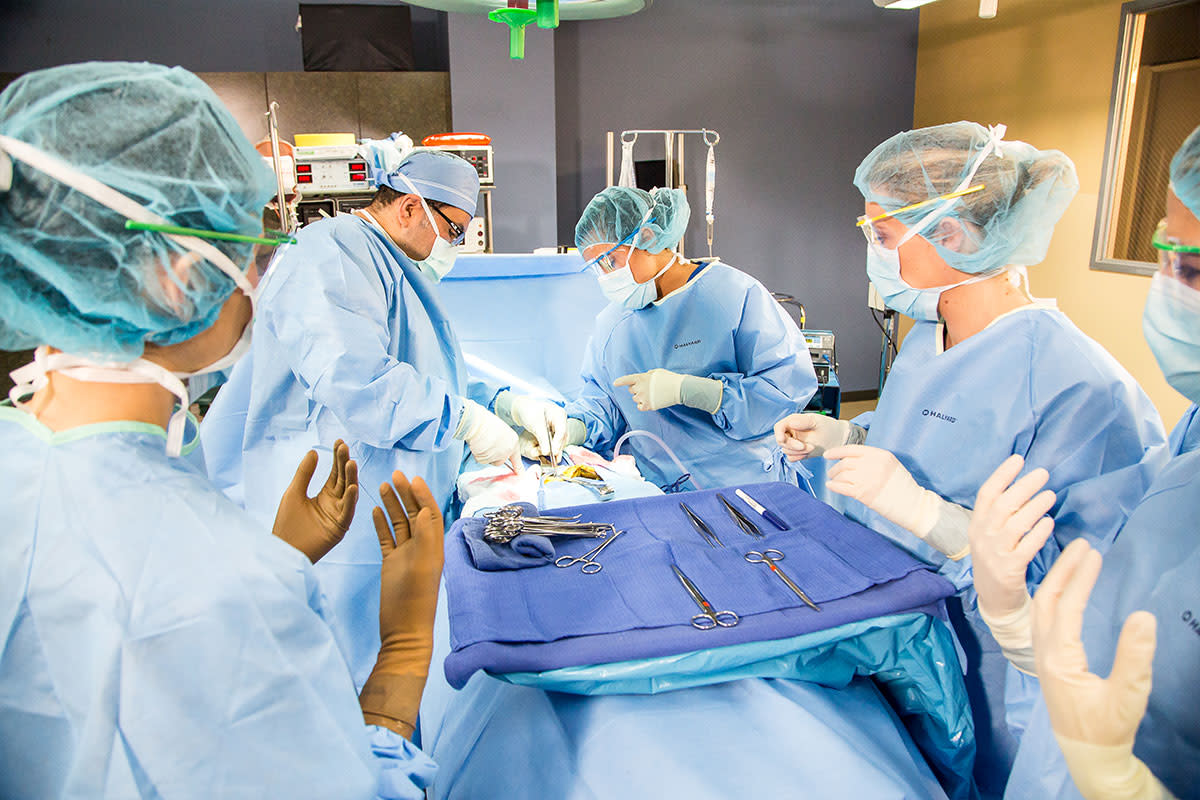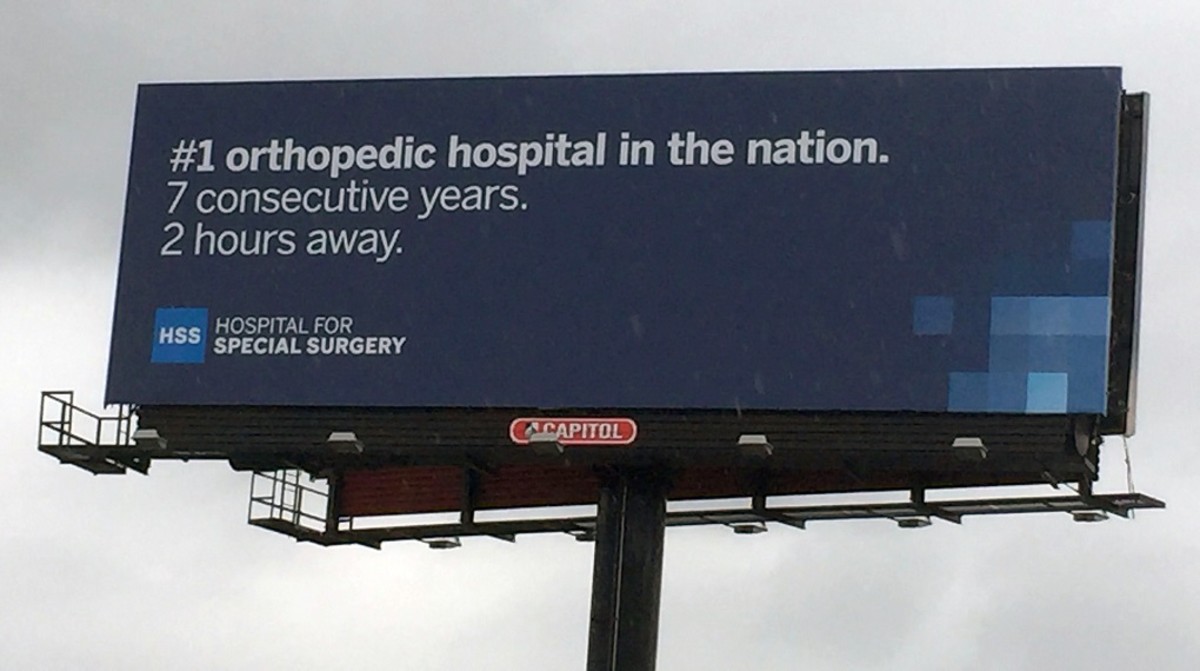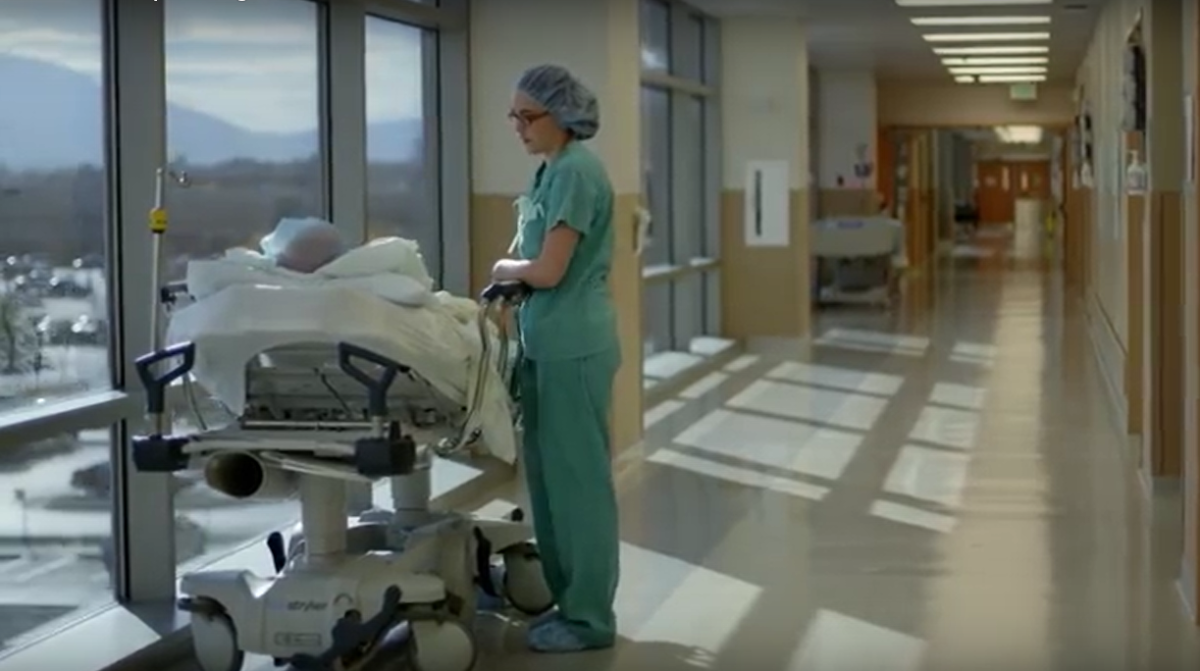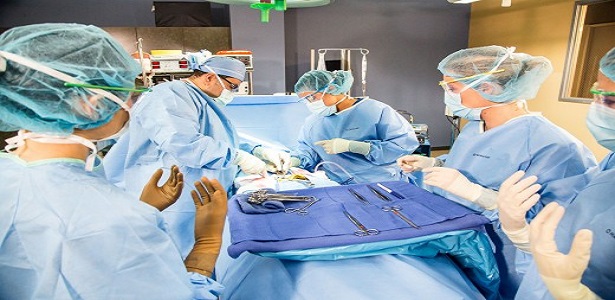Contents
- My Qualifications
- Note to Reader
- Technologists at Work
- What Is a Certified Surgical Technologist (CST)?
- The Importance of Sterile Technique
- Short Video (Sterile Technique)
- Patient Role in Positive Surgical Outcome
- Choosing Your Surgeon
- Steps to Take
- The Conversation You Need to Have
- Conclusion
Note: CST, ST, scrub tech, and scrub nurse are synonymous terms within the industry. You may find that I use them interchangeably in this article.
My Qualifications
The next paragraph provides an outline explaining why a CST (certified surgical technologist), like myself, or a surgical nurse is truly the best resource you have when it comes to getting the advice you need for finding a competent surgeon near you. I want you, the reader, to know that the information contained in this article is not based on theory, but on 29 years of clinical experience.
It always troubles me when I hear of a friend or family member that had a poor surgical outcome. Even more troublesome is the thought that many times, patients are on their own when it comes to finding the information they need; they are left reading reviews on a surgeon’s personal website or hearing about them by word of mouth from other patients—patients that don’t know the ins and outs of the field and may not be the best advisors.
We will all need surgery of one sort or another at some point in our lives. Surgical interventions are too serious a matter to lack appropriate support and guidance. I hope to offer that support and guidance so that you can make an informed decision.
Note to Reader:
If you would rather cut to the chase by avoiding the text discussing qualifications, proceed directly to the last two paragraphs to see the summation, directives, and conclusions for finding a good surgeon.

What Is a Certified Surgical Technologist?
A certified surgical technologist (CST) is a healthcare professional specifically trained to work in the surgical setting of a hospital. Though our duties are extensive and diverse, I would like to provide an abridged list for you below. Our responsibilities include:
- creation of the sterile field
- maintenance of the sterile field
- arrangement of surgical instruments
- draping of prepped surgical patient
- assists surgeon throughout procedure- suctions, sponges, cauterizes, cuts tissue, etc.
- passes surgical instruments to surgeon and other relevant team members
- assists in closing surgical wounds
- initiates sponge/needle/sharps/instrument counts at appropriate times during procedure to ensure no foreign object is left inside the patient
- cleans blood/betadine/foreign materials from patient- helps make them presentable for family post surgery
- serves as the eyes and ears of the operating room and is the strongest advocate of surgical conscience
We work in the closest proximity to the surgeon, either right next to him/her or directly across from him/her. Having functioned in this capacity for as long as I have I can tell you with confidence that no one knows the quality of a surgeon better than a CST or operating room nurse. It is for this reason that I feel qualified to write this article and make the claim I am making; namely, that I can help you find a well trained, highly skilled surgeon; one that will be well suited to meet your surgical needs.
“For the Surgical Technologist, a surgical conscience is rooted in the fundamental understanding of the principles of asepsis and commiment to practice sterile technique. Of all the tasks and roles a surgical technologist may play during his/her career, the most important is as a guarantor of sterile technique in the OR. He/she is committed to professional honesty, patient confidentiality, and non discriminatory treatment…”— Surgical Technology For The Surgical Technologist: A Positive Care Appproach- 2nd Edition p.34
The Importance of Sterile Technique
Sterile technique refers to a set of scientific rules that govern the conduct of surgical staff in the operating room. A basic explanation of this practice in lay terms would be the methods adopted to best reduce the chances of pathogens to enter a patients body. The surgical patient is more vulnerable than any other patient, more susceptible to a virulent bacterium, viruses, vectors, etc. This patient population must, therefore, be vigorously protected. They are unable to protect themselves in the operating theater. A long list of rules must be observed for every surgical intervention beginning with the simple donning of surgical attire such as: scrubs, masks, hair nets, sterile gowns, and gloves. It is the strict observance of these (and many others such as the administration of pre-surgical antibiotics) protocols that stands between the patient and SSI’s (surgical site infections). The surgical technologist alone has extensive training in this discipline; it is the foundation of all his/her learning.
Since the CST places such a high value on sterile technique, it follows that the most respected surgeons are the ones who not only have excellent technical skill in their specialty but also adhere to this essential aspect of patient care. This crucial element of operating room conduct is possibly the greatest defense against infection. Surgeons that adhere to these protocols have lower rates of infection in their patient populace. SSI’s can lead to break down of surgical repairs, wound necrosis, wound dehiscence, and a variety of other maladies. The surgical technologist is able to judge which surgeons are compliant with the protocols of sterile technique.
Health Education & Training for Sterile Technique in the Operating Room
What Is Your Contribution as a Patient to a Positive Surgical Outcome?
The table below exhibits patient behaviors that either help or hinder surgical outcomes. Patients that smoke typically do not heal as well as non-smoking patients due to nicotine-induced restrictions of cellular profusion as well as airway compromises. Heavy patients often carry the burden of poor circulation, and at times, diabetes, which also inhibits the healing process. The patient who is a drug user often requires greater amounts of anesthesia due to a higher than normal tolerance for controlled substances. This increases his/her surgical risk.
Also, patients that are noncompliant increase their chances of a poor surgical outcome, not by what they do, but usually by what they do not do, e.g. not keeping follow up appointments, not changing dressings as frequently as instructed, not keeping an affected limb elevated, etc.
This is information is not given for the purpose of discouraging the patient with any of the conditions or situations described below, but rather of honestly informing the potential surgical patient of what he/she can do to decrease the chances of a poor surgical outcome.
Are You Minimizing or Increasing Your Risk?
| Minimizing Risk | Increasing Risk | ||
|---|---|---|---|
| Smoker | X | ||
| Keeps follow-up appointment | X | ||
| Unhealthy diet/carrying excessive weight | X | ||
| Non-smoker | X | ||
| Compliant with pre- and post-operative instructions | X | ||
| Drug/alcohol addiction | X | ||
| Drug/alcohol free | X |
Your behavior as a patient will play a significant role in your post-operative recovery.
Choosing Your Surgeon
So far we have discussed the ways in which ancillary staff, like myself, serve to insure a positive surgical outcome. We’ve talked about the scientific principles of aseptic/sterile technique, and how these practices protect the patient from the dangers of SSI (surgical site infection). We’ve embedded a short video in this article to show the transmission sources of pathogens and preventative measures taken against them, and we’ve shown ways in which the patients themselves contributes either to a positive surgical outcome or a negative one.
While all the information provided thus far is important, none is more so than how to go about choosing a surgeon.
Billboards showing pizzas and burgers might make you hungry, and may even provide an accurate portrayal of the service you might receive at restaurants featuring those items. However, I advise ignoring billboards containing information about surgeons and surgical services, and those billboards are out there. I’ve asked the surgeons I work with,
“How many patients to you get based on those billboards I’ve seen with your picture on them?”
The answer is always the same- “none.”
Then why advertise? Because hospitals where the surgeons operate either ask or require them to be featured on those billboards.

The Steps You Need to Take to Find the Right Surgeon for You
Patients rarely base their choice of hospitals or doctors on the claims of billboards. Usually patients go to the hospital nearest to them. Every hospital boasts of having the best surgeons, but how can the patient know which hospital is telling the truth? In reality, they can’t. Patients tend to believe correctly- that every hospital has both good and bad doctors. What they have trouble with is discerning one from the other. I’ve compiled a list of do’s and don’ts below that will assist you in your search.
- Don’t– rely solely on websites created by or for a surgeon. I have never seen a surgeon’s website touting his incompetence or mediocrity. Websites are not intended to dissuade the viewer or drive them away, but to attract their business. One of the best surgeon’s I ever had the pleasure of working with never had a website. His reputation was so good he never needed one.
- Don’t- select a surgeon because he/she is nice to you. Though rare, a less than competent surgeon may be able to persuade a patient that a bad outcome was the patient’s fault. Liking your surgeon because they are “nice” could be a blinder in a situation like this. A reputable surgeon will take responsibility for a mistake should one occur.
- Don’t- reject a surgeon because he/she isn’t nice. A good bedside manner is not necessarily indicative of a quality surgeon. Some surgeons are blunt, terse, and can come across as harsh. They may tell you to lose weight prior to your surgery, or to quit smoking. To some patients this isn’t “nice.” In the end the surgeon isn’t there to be your friend, but to do their best to improve your quality of life, and in some cases, even save it.
- Do- (This is the most important point) talk to a friend or relative who is a surgical technologist that works with, and knows surgeons who would be best suited to meet your surgical need. Everyone has a friend or relative in the medical field. If you don’t personally know a surgical technologist or operating room nurse, then find a friend in the medical field who does. Ask your friend to put you in touch with the surgical technologist or nurse so that you could ask them some questions regarding surgical interventions. I encourage perspective patients to do this for 2 reasons:
1. It is direct contact with a professional working in the field and directly with, surgeon/surgeons who might be operating on you. The professional opinion of such an individual is worth far more than a review on a website or claim on a billboard.
2. Online reviews can be misleading. A noncompliant patient may have a poor surgical outcome, then go online and leave a negative review because they blame the surgeon. Also, they may have a poor outcome, but go online and leave a positive review for their surgeon because even though they had a poor outcome, they like the surgeon. This sort of misplaced praise is sadly seen often times in the geriatric community.

The Conversation You Need To Have
When you speak with a surgical technologist be aware that ethical practices require him/her to speak in such as way as not to slander a surgeon of whom they may disapprove. Your questions, therefore, should not be directed toward the negative, but rather, the positive. Below is an example of how your conversations should flow:
Surgical Technologist (ST)- I understand you have some questions for me regarding a possible gall bladder operation?
You: Yes, I’m looking for a good surgeon and I really don’t know where to begin. I was hoping you could help me?
ST: We have several good general surgeons employed by our hospital. All of them are board certified and highly qualified to perform a cholecystectomy (removal of gall bladder) should it be determined that you need one.
You: Yes, I’m sure they’re all good, but if it were you needing the operation…who would you choose?
ST: Well, that’s tough. As I said, they are all competent, but the one I would see is Dr. Carmichael. She’s excellent. She has superb sterile technique, is patient with new staff, she’s serious, but not in a way that makes staff nervous or fearful.
You: That’s good, but what is her bedside manner like? Is she nice?
ST: Dr. Carmichael is very professional. She won’t tell jokes and probably won’t laugh if you try to joke with her, but she’s the best technical surgeon I’ve worked with. If it were me, I’d be willing to trade her professionalism for a laugh, that’s for sure.
You: That all sounds good. What is my next step in securing her as my surgeon?
ST: I really can’t help you with that. It depends on a few factors, like what type of insurance you have. You’ll have to see if Dr. Carmichael is in your network of providers. It will also depend on the urgency of your need. I am happy to provide some direction for you in terms of who I think might be able to best help in your situation, however, I cannot involve myself in interpreting your options per your insurance plan.
You: What do you think about Dr. Smith? I know he’s in my insurance network.
Remember, the ST will not (at least should not) speak disparagingly of Dr. Smith. If the ST does not regard Dr. Smith as a surgeon fit for your needs, he may respond like this:
ST: As I said, I would go to Dr. Carmichael.
You: So you don’t like Dr. Smith?
ST: …I would go to Dr. Carmichael
Conclusion
The vast majority of surgeons are capable and competent. All of them are intelligent. There are those few, however, that you want to avoid. It is not my intention to speak ill of surgeons. They sacrifice a great deal in order to do what they do. Many years of higher education, medical school, residencies, and special programs keep them away from family and friends. They often, routinely, put in 16 hour work days. I hold their profession in the highest regard. It is because of those few I believe to pose a threat to the well being of the patient population that I write this article. I hope it is of help to you.

